 Once you’re all set up with your Gaggia coffee machine you’ll soon master exactly how it works so you can make your perfect cup of coffee every time. Here are the tips of the barista trade to make that magic happen in your own home. Firstly, you’ll always need a very finely ground coffee for your Gaggia coffee machine. The holes are tiny in the filter holder so the finer the grind, the more flavour and crema you’ll get as the hot water flows through the coffee. We do our own top quality Gaggia brand ideal for our machines which you can get direct from our website at https://www.gaggiadirect.com/coffee1.html When making your coffee always heat the filter holder up first – you can run some hot water through your machine over the holder and into the drip tray to do this - and do the same with your cup. Hot water is dispensed from a coffee machine at 80°C to 90°C and if it hits a cold cup that temperature will quickly come tumbling down. Many Gaggia coffee machines even have cup warmers on the top of the machine so you don’t have to run hot water over them. If it’s manual, pour your coffee into the filter holder (called a portafilter in Italy), level it off and then push it down with a little weight called a tamp so it’s nice and condensed. This will get you more flavour out of your coffee as the water will seep through it evenly. If there isn’t enough coffee in there or it’s not been pushed down sufficiently the water would go through unevenly and too quickly, leaving your coffee taste falling short of what should now be high expectations. The hot water will come through at a set pace on the vast majority of Gaggia machines so you need to get your coffee amount just right to make the most of that water flow. Don’t worry, you’ll quickly learn what’s right for you. The first 20 seconds of the hot water flowing through the coffee gets the best flavour so don’t keep running it through the machine to try to fill an americano. Use an expresso or two and then add some hot water from the machine. Think of it like a teabag – you wouldn’t use it twice and, likewise, the coffee residue will deteriorate after that initial 20 seconds. Don’t have the water too hot as it will burn the coffee – that’s why it’s vital to warm the cup first. Don’t overheat your milk as you’ll caramelise it and it’ll taste bitter. All Gaggia coffee machines come with their own inbuilt milk frothers so you can do just what you want with your milk – air it, warm it or froth it big-style. And it gives you that great authentic barista sound! That’s also how you sort out your cappuccino and your lattes – you’ll quickly get to know how much milk to put in and how much frothing you want. You also get your hot water from here in case you just wanted to make yourself a cup of tea but, come on, get a grip. This is coffee talk, not tea talk. Top of the range Gaggia automatic coffee makers have digital displays showing images of the drinks, several milk frothing options and you can even set up your own profile to save the perfect settings for your individual taste, from the strength of the coffee to the heat of the water. Yes, Gaggia is your ultimate coffee gadget. So it’s goodbye café society and your fiver a cuppa. Hello to top quality coffee, made to perfection to your own personal preference and in the comfort of your own home for 15p. That’s some difference. By the way, if you ever get stuck working out your machine or making your ideal cup of coffee than you can contact us directly in seconds on Zoom and we’ll talk you through it. Read more about that at https://www.gaggiadirect.com/blog/why-gaggia-uk-directs-forever-customer-care-service-is-the-best-in-the-coffee-business
0 Comments
 When you’re choosing a coffee machine think about how much control you want to make your ideal cup of coffee. Spare a thought too about how much making your coffee can save yourself possibly hundreds of pounds a year and also make a positive impact on the environment. Here at Gaggia there are two types of coffee machine – manual and automatic – and all our 20-plus models are made in Italy so expect plenty of iconic style. With manual you do it all yourself – grinding your coffee beans, loading your coffee into the filter holder (called a portafilter in Italy), levelling it off, pushing it down in a process called tamping and then frothing your milk. Make sure you’ve enough coffee in your holder and it’s tamped down properly to make the most of the speed the hot water goes through it. You have that control to do it just how you want and once you’ve mastered it then your machine will make that perfect cup of coffee every time. The other way is to go automatic and it’s all done for you. In short, think of an automatic coffee machine as having a tiny barista inside it. All you need to do is pop your coffee beans in the top. When you’re ready for a drink select what drink you want – it may be an expresso or an americano - push a button and the exact number of beans needed to make the drink go through the grinder and drop into the brewing unit. In automatics the tamp is pressed up rather than down to make it firm and even and the hot water is also forced up through the coffee and then out into your cup. When the hot water has gone through the coffee to make the drink the coffee ground left is known as a puck – small and round like an ice hockey puck - which drops into a holder. It takes around 10 pucks before it needs emptying. Automatic machines will sort out the amount of water you need – 30ml to 90ml for a single expresso up to 240ml for an americano. Coffee machines pump at between 9 to 15 bars of pressure and produce hot water at around 80°C to 90°C although you can change the temperature on some machines along with the coffee strength from 7 grams to 11 grams. You can even put pre-ground coffee in too without having to lift the beans out – ideal for those wanting a spot of decaffeinated coffee. The beauty of the Gaggia filter holders is that the vast majority are 58mm in diameter which means they fit any Gaggia machine stretching back to the 1940s. That dimension has never changed which makes the machines so universal and iconic. Coffee capsules are convenient but they can be expensive. We do a couple of coffee capsules machines here at Gaggia but have found that people prefer to have more choice and control over the coffee they make. Coffee capsules are also pricey and not good for the environment with the capsules being thrown into the waste bin and then landfill. Prices vary but for a decent coffee pod you’re looking at around 30p to 35p a cup. Our Gaggia coffee – ground just right for all our machines – is £15 for a kilogram and with between 7 and 11 grams needed per cup it works out around 12p to 15p a cup. That’s suddenly sounding like 1970s prices! And, of course, you can dispose of your old coffee grounds right where they should be … on the ground in your garden helping to give your plants a boost and keeping slugs at bay. Read more about that at https://www.gaggiadirect.com/blog/are-coffee-grounds-good-for-your-garden-and-compost By our maths a cup of coffee made with one of our Gaggia automatic or manual machines will cost you half what a capsule would and if you have four cups a day that’s the best part of £450 you’ll be paying out yearly for capsules. Your ground coffee or coffee beans will come in at around half that. What a win-win for you and the environment so go green by putting your coffee grinds on your garden, not a capsule in your bin.! If you do want a capsule-style that’s not a capsule yet works in any Gaggia machine then we have Easy Serving Expresso pods – ESE for short – which pay a passing resemblance to those instant real coffee bags but these are small, round and slot perfectly into your coffee filter holder. Gaggia coffee machines start at £179 for the basic manual up to £1,800 for the top-of-the-range automatic that’ll do anything you’d expect a coffee machine to do … and then a whole lot more. It has a digital display featuring 19 pre-set drinks and you can control everything on it, such as the water temperature and even the flow rate. The £179 version makes life easier for beginners as the coffee filter holder has one hole rather than several to pressurise the flow more and get that nice creamy effect. The automatic range starts at £299 with the digital display ones £425 and upwards. It’s a small price to pay for thousands of cups of great coffee, especially when you get the great Gaggia warranty and our unique forever customer care. Read more about that at https://www.gaggiadirect.com/blog/why-gaggia-uk-directs-forever-customer-care-service-is-the-best-in-the-coffee-business So there you have it. A quick guide to buying the Gaggia coffee machine that suits you down to the ground. For more advice phone us Monday to Friday on 01422 766972, email us at [email protected] or contact us instantly on Zoom at https://www.gaggiadirect.com/meet-us-live.html and we can show you the different machines in our showroom and what they do. Gaggia coffee machines were first invented in Milan in the late 1930s, revolutionising the way coffee was made and setting new stylish standards worldwide.
In 2003 Gaggia UK Direct was granted Cool Brand Leader status by The Brand Council which put the company alongside the likes of Aston Martin, Chanel, Royal Doulton, Bang and Olufsen, Jaguar Cars, Lambretta, Vespa, Moet & Chandon, Selfridges and Xbox. This is because Gaggia changed the way coffee was made forever. Until 1938 the only way to make expresso was to blast the coffee grounds with steam but Italian businessman Achille Gaggia felt this gave a poor, bitter taste and believed he could invent something much better. He had an ingenious mind and forced hot water to flow over the grounds at high pressure which first produced the crema unique to expresso. The first steamless expresso machine Gaggia invented in Milan in 1938 revolutionised the way coffee was made. This extracted a range of aromas and natural coffee oils to produce a soft layer of ‘crema naturale’ on the top of the drink. The espresso became different and better, more intense and captivating, characterised by a rich and bold flavour. In 1947 the invention moved to a lever-piston brewing mechanism after Achille saw how an American jeep’s piston engine worked. The Gaggia company was founded the same year and the Gaggia name has been renowned for making consistently high quality coffee machines ever since and continues to be widely acknowledged to be a leading authority within the coffee industry. In 1952 Gaggia invented the first coffee machine for domestic use called Gilda, inspired by actress Rita Hayworth’s iconic performance in the 1946 film Gilda. But it was in the 1970s when the Baby Gaggia coffee machine helped to propel the brand to the top of the domestic market as this machine made it possible for people to create a café standard expresso in their own home. Gaggia has kept its high position ever since with some machines so eye-catching you’d be right to consider them works of art. Every Gaggia machine is made in Italy combining cutting edge technology, quality and reliability with traditional yet always stylish design. The latest automatic machines will grind the beans, measure the water and deliver the perfect cup of expresso coffee at the push of a button. Some now have digital screens showing the drinks with the top-of-the-range model offering 19 different coffee drinks. The start to making a cup of coffee is the filter holder where you put the coffee in and all Gaggia holders - called a portafilter in Italy - are 58mm in diameter which means they can fit any Gaggia machine stretching back to the 1940s. That dimension has never changed which makes the machines so universal. Gaggia UK’s outstanding customer service - known as ‘forever customer care’ – is also iconic. The company has an almost 100% five-star rating on Trustpilot and is immediately accessible on the phone or by Zoom on the internet. This means that if there’s something a customer doesn’t understand about their coffee machine or they think it may have developed a fault, Gaggia UK’s highly experienced engineers can immediately join the call, see the machine via Zoom and talk the customer through how to solve the problem. This special customer service helps everyone – the customer, the business itself and the environment and you can read more about it here: https://www.gaggiadirect.com/blog/why-gaggia-uk-directs-forever-customer-care-service-is-the-best-in-the-coffee-business As Gaggia UK managing director Raj Beadle says: “We used to get around 1,500 machines in a year for service, upgrade or repair but that number has now been halved, saving customers lots of money and their machines needing to be packaged up and sent on expensive, often needless, journeys back to us.” This all means that Gaggia is a truly iconic brand for today’s ever growing coffee culture. Did you know that coffee can be a great pick-me-up for your plants as well as yourself?
Well, here at Gaggia UK Direct we want to make sure our products are as environmentally friendly as possible … and with coffee grounds only going as far as your garden then we reckon that’s a box ticked. According to the BBC’s Gardeners World magazine: “Coffee grounds are an excellent compost ingredient and are fine to apply directly onto the soil around most garden plants if used with care and moderation.” Coffee’s a good fertiliser because coffee grounds are rich in nutrients, particularly nitrogen, and also contain potassium and phosphorous. But spread it as a thin layer so it shares the nutrients around - don’t just chuck it on your garden in clumps. If you do that the grounds will clog together in a big blob of coffee, stopping water and air from getting to plant roots. You could always just pop your Gaggia coffee grounds into your compost bin where they will just naturally rot, adding nutrients to your homemade compost which is an effective way to grow healthy plants. Obviously don’t overdo it – keep the coffee to under 25% of the overall compost of what you’d normally throw in there such as vegetable and fruit scraps along with leaves. This will all break down into great compost over time as the rain and sunshine hits it. It saves throwing your coffee away in the kitchen bin and some people even pour their coffee grounds down the sink where it could ultimately block the pipes. When the soil is turned over the coffee grounds will then be fully recycled back into the soil. Coffee is slightly acidic so it’s good to use with plants that like acidic soil such as hydrangeas, azaleas and lilies and root crops such as radishes and carrots, especially when mixed with soil at planting time. It’s even suggested that coffee grounds can repel slugs as they don’t like the caffeine or gritty texture so it may be worth spreading them around the plants that slugs tend to target. Be aware that caffeine is toxic to dogs and, although very little caffeine will be left once you’ve brewed your coffee, it’s probably best to work it into the soil or put it in your compost bin if you have a nosey pooch that’ll eat anything. Some say coffee grounds repel cats and put them off using your flower and vegetables patches as an outdoor litter box. If so, that’s a bonus. The website Gardening Know How suggests making a coffee ground ‘garden tea’ by mixing a couple of cups of coffee grounds in a five-gallon water can, leave overnight and then use it as a liquid fertilizer. Some say they’re a great fertilizer for tomatoes while others are not so sure. It’s also suggested coffee grounds work well with cabbages, fruit trees, roses and camellias but not on beans. It’s even thought that coffee grounds will deter weeds. Like everything, it’s all down to trial and error and, as time goes on, you’ll discover which parts of your garden like your used Gaggia coffee grounds best. Happy gardening but don’t forget to keep stopping for a nice cup of Gaggia coffee. Your plants will blooming well love you for it! There’s a saying that charity begins at home but here at Gaggia UK Direct we believe it starts in the business too.
After all, coffee is a sociable drink which brings friends together and can be a great way to help charities and community groups. So we use the power of coffee to help many charities, donating machines and providing free barista training to several good causes, as well as raising thousands of pounds every year. Managing director Raj Beadle has lived in Huddersfield, West Yorkshire, for many years and so the company regularly donates to the town’s Welcome Centre food bank and the Huddersfield Mission where Raj used to be a trustee, along with international charity Christians Against Poverty and the Leeds-based Little Sisters of the Poor which runs a care home for the elderly. Raj had never heard of the Little Sisters until they knocked on the Gaggia UK Direct door at its headquarters in Elland, West Yorkshire. “I first knew about them when two nuns knocked on our door asking for donations,” says Raj. “I was so surprised to see them standing there we’ve helped them ever since.” Huddersfield Mission helps people struggling with complex needs such as homelessness, mental health and addiction. Gaggia UK Direct donated a commercial coffee machine and provided the charity with barista training. Raj has been a member of Lindley Methodist Church in Huddersfield for a long time which has supported a charity called the Riziki children’s organisation based in Nakuru, Kenya, for 15 years. Riziki rescues young children, usually orphans, trying to survive by scavenging on a rubbish tip just outside the city. They then live in dormitories at the organisation’s centre where they grow their own food and vegetables and Riziki also pays school fees so the children can go to a nearby school to help them on their way to a better life. The schooling can lead into higher education, including universities. The charity costs £50,000 a year to run and a series of church events culminating in a fundraising concert at Lindley Methodist Church in May 2024 raised almost £5,000, This included Raj raffling off a gold-coloured coffee machine and Gaggia UK Direct sponsoring the concert and making donations to the music groups involved. Raj hosts and sponsors a coffee morning in the church on the third Friday of every month from 10am to 12 noon to raise even more for Riziki, with the mornings expanding into crafts and charity stall events. Gaggia UK Direct has sponsored Cleckheaton Cricket Club near Dewsbury in West Yorkshire for many years – it even has its own Gaggia scoreboard – and a youth team at Greetland Football Club near Halifax which is also in West Yorkshire. Gaggia UK Direct staff are involved in both these organisations. In the past Gaggia UK Direct has been a major supporter for Macmillan Coffee Mornings and also helped the Prince’s Trust’s ‘Get Into’ scheme providing free training for youngsters struggling to get into work or training, often because they come from deprived backgrounds. Gaggia UK Direct not only trained them for two weeks with top baristas but took some on and one now runs her own business. Raj said: “I wish we could do something similar now as we could do it over Zoom online. People sometimes need a stepping stone in life and we would gladly help them.” Contacting Gaggia UK Direct couldn’t be easier. Phone us Monday to Friday on 01422 766972 or email us at [email protected] Here at Gaggia UK Direct customer service is our absolute top priority which is why we have an almost 100% five-star rating on Trustpilot and are immediately accessible on the phone or by Zoom on the internet.
When you contact us you come straight through to a member of staff – no voice-activated messing about pushing this button or that while listening to some terribly tinny muzak. Some businesses make it difficult to contact them but we couldn’t make it easier. It’s called good old fashioned customer service although it’s absolutely harnessed the technological era too. For you can phone us or contact us immediately on the internet via Zoom so you can also see a face as well as hear a voice. But it’s far more than that. It also means that if there’s something about your coffee machine you don’t understand or you think there may be something wrong with it our highly experienced engineers can immediately join the call, see your machine and talk you through how to solve the problem. The vast majority of issues are sorted this way, saving wasted time and expense boxing up a machine and sending it back to us. Gaggia UK Direct managing director Raj Beadle says: “Most things that customers contact us about are quickly and easily solved and often it’s just a case of showing them how to do something with the machine themselves. “We will help any Gaggia user, whether they are in the UK or elsewhere in the world. Since we introduced the Zoom service we are helping people from all over the world who come on Zoom to meet us. “That forever customer care is there even when the warranty has run out. It’s the best in the business and we have many testimonials from thankful customers.” This special customer service helps everyone – the customer, the business itself and the environment. As Raj says: “We used to get around 1,500 machines in a year for service, upgrade or repair but that number has now been halved, saving customers lots of money and their machines needing to be packaged up and sent on expensive, often needless, journeys back to us.” But don’t just take our word for it. We have almost 700 reviews on Trustpilot with 98% giving us a five star rating. Aaron Dawson wrote on April 30, 2024: “Absolute outstanding customer service. Bought a machine from them a few years back, had an issue today with the steamer not working correctly. Called them up and within a minute I was on a Zoom call with two amazing guys who talked me through how to fix it and within five minutes it was working again! Absolute five star service and I’d go on to say the best customer service I’ve ever experienced.” Gary Clarkson wrote on May 20, 2024: “Great company and the UK office is one of the best after care services by any company in the world.” David Perren wrote on May 14, 2024: “Wouldn’t go anywhere else for Gaggia kit. Why? They couldn’t be more helpful with queries and after sales service. Delivery times are excellent. My advice, deal with the best forget the rest.” We look forward to speaking to you! Gaggia celebrates 85 years this year. 1938 - 2023.
To mark 85 years, we have introduced the GAGGIA Classic in GOLD. This is a limited edition model and is currently available on our website. Don't miss out. Shades of Coffee, is a UK based business that has a strong focus on the Gaggia Classic espresso machine. They have a wealth of experience, gained over more than 20years, of use, modification and repair of the Gaggia Classic. You may be interested in one of their kits, or, you may like help or assistance with a Gaggia Classic machine. They're always happy to chat - so try and reach them on their online chat and they'll do their best to help.
www.shadesofcoffee.co.uk Q : How long does it take for the machine to heat up to make your coffee ?
A : The boiler is fitted with two thermostats which control the temperature in the boiler. When you press the ‘on’ switch, the boiler starts to heat up and will get to the initial temperature of 70degrees in about 50 seconds. It continues to increase in temperature up to about 90 degrees, in another 20 seconds, and the thermostat will switch off and it keeps it within the 70-90 degrees level. To be able to make the coffee, you need to make sure that the filter holder is warm as well. The most effective way to do that is to run some water on the filter holder when the temperature reaches 90 degrees, ie within about 80-90 seconds of switching on the machine. Then you are ready to brew. The other thermostat is for steam. When you switch on the steam switch, it will take a further 30 -40seconds to get steam. You can start steaming even before it reaches full temperature. Viale Premuda, Milan, 1930. Achille Gaggia works as a barista in his family’s coffee shop, named “Caffè Achille”.
He is a tireless and committed worker, trying to satisfy his demanding clients. At that time, coffee was made by “column-style” machines that produced a bitter, dark, and burnt beverage, that was not highly appreciated by people. Achille, who has always been fascinated by the engineering and functioning of the machines, decided to study a way to improve the taste and texture of coffee, experimenting in his family’s coffee shop. With the support of Antonio Cremonese, an engineer, Achille could perfection his idea to enhance the process of making coffee. He developed a prototype of espresso machine that used the pressure of hot water instead of steam, that was used back at that time. With that system, hot water passed through ground coffee at a high pressure, extracting coffee oils and making a drink with a rich aromatic body and a delicious taste, with a layer of hazelnut-colored cream on top. Achille deposits the patent n.365726 on Sept. 5, 1938 for what he called “Sistema Lampo” (Lampo System). It was thanks to that invention that the famous and beloved Italian espresso with “crema naturale” (natural cream) was born. It is called “natural” because it naturally originated from the passage of hot water under pressure through ground coffee. Read more.... |
Category
All
AuthorHello, my name is Raj Beadle. I am the author of this blog. I am the owner and managing director of Caffe Shop Ltd - Gaggia UK. We represent Gaggia spa in the UK and are the exclusive distributor of Gaggia in the UK. We also directly retail via our website www.gaggiadirect.com and also through our own retail shops. Archives
July 2024
|







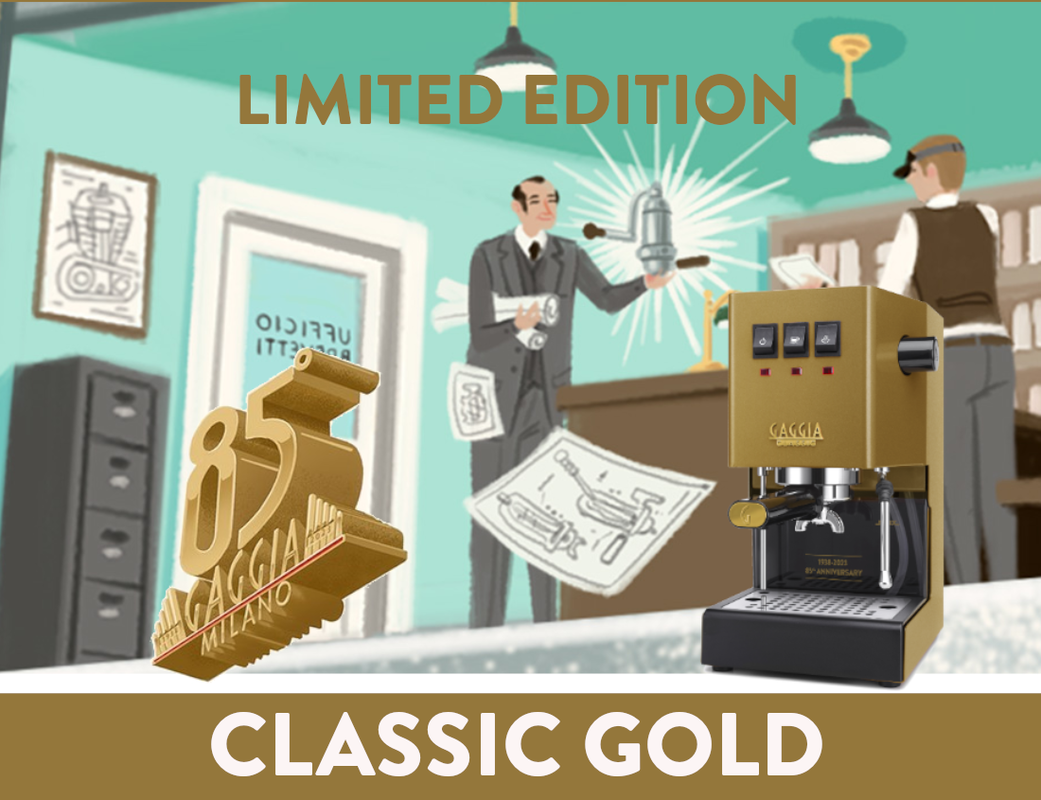
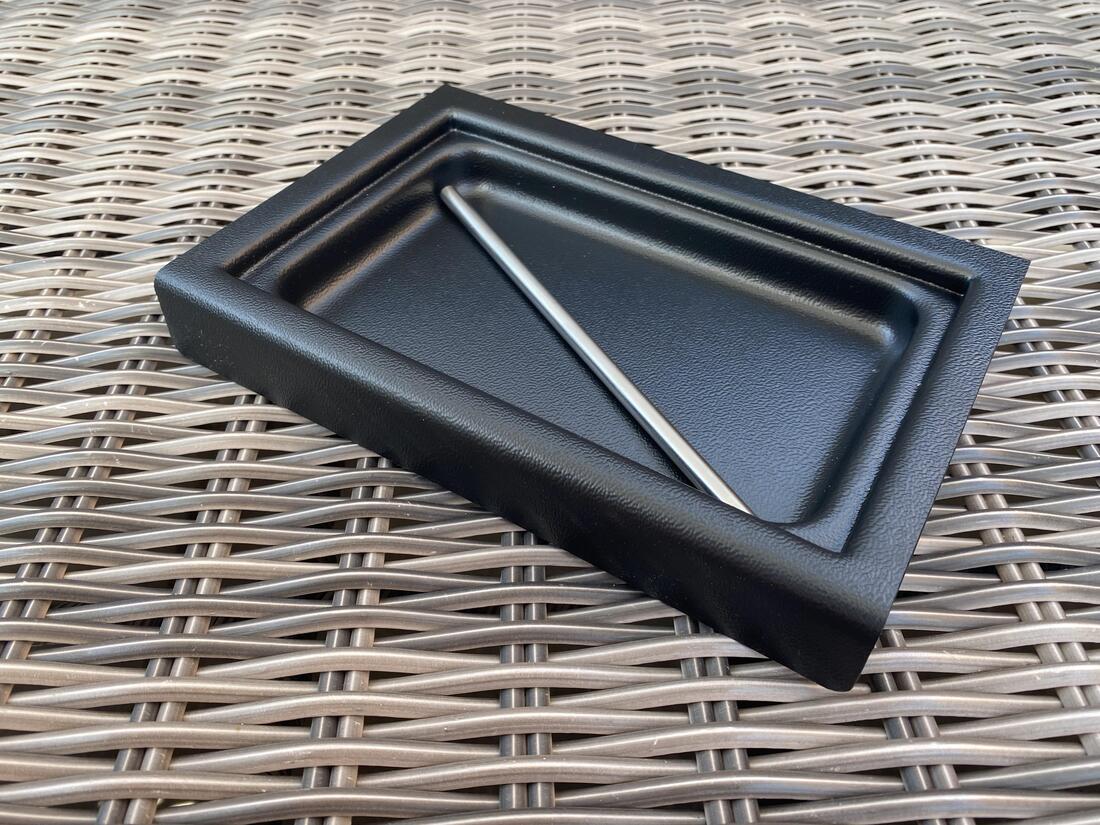
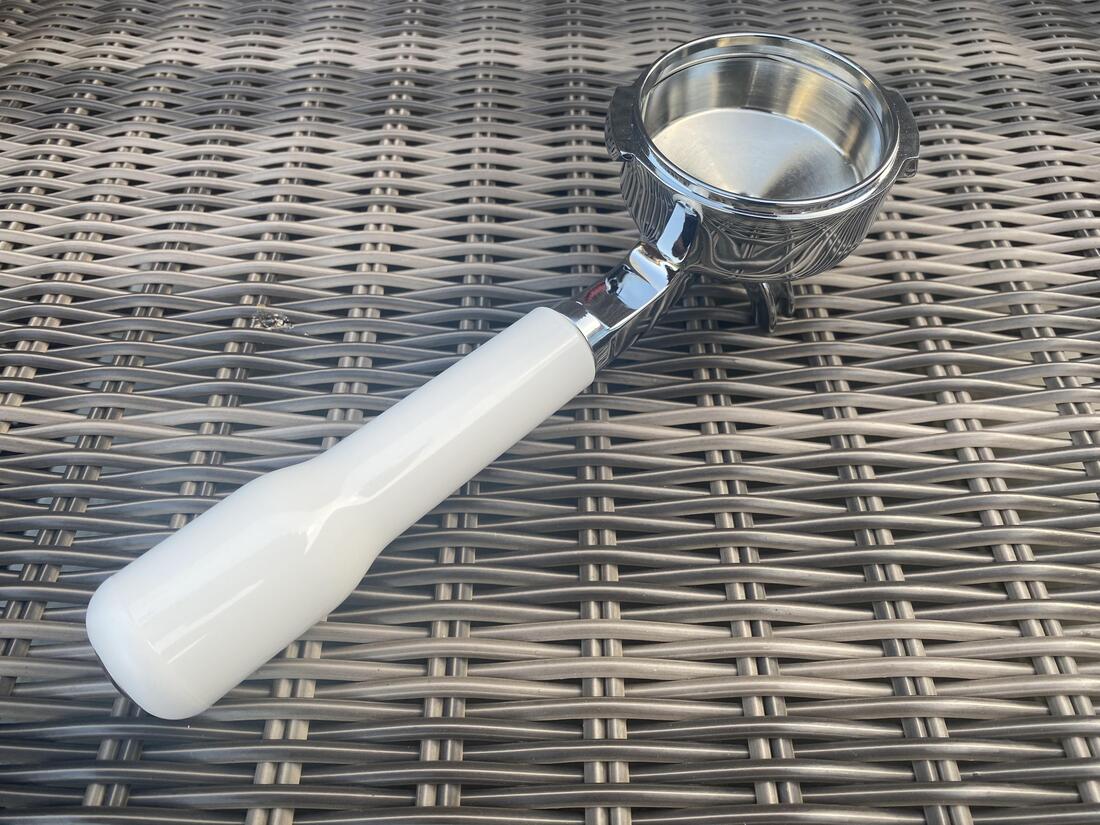
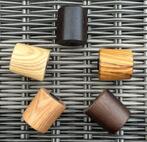

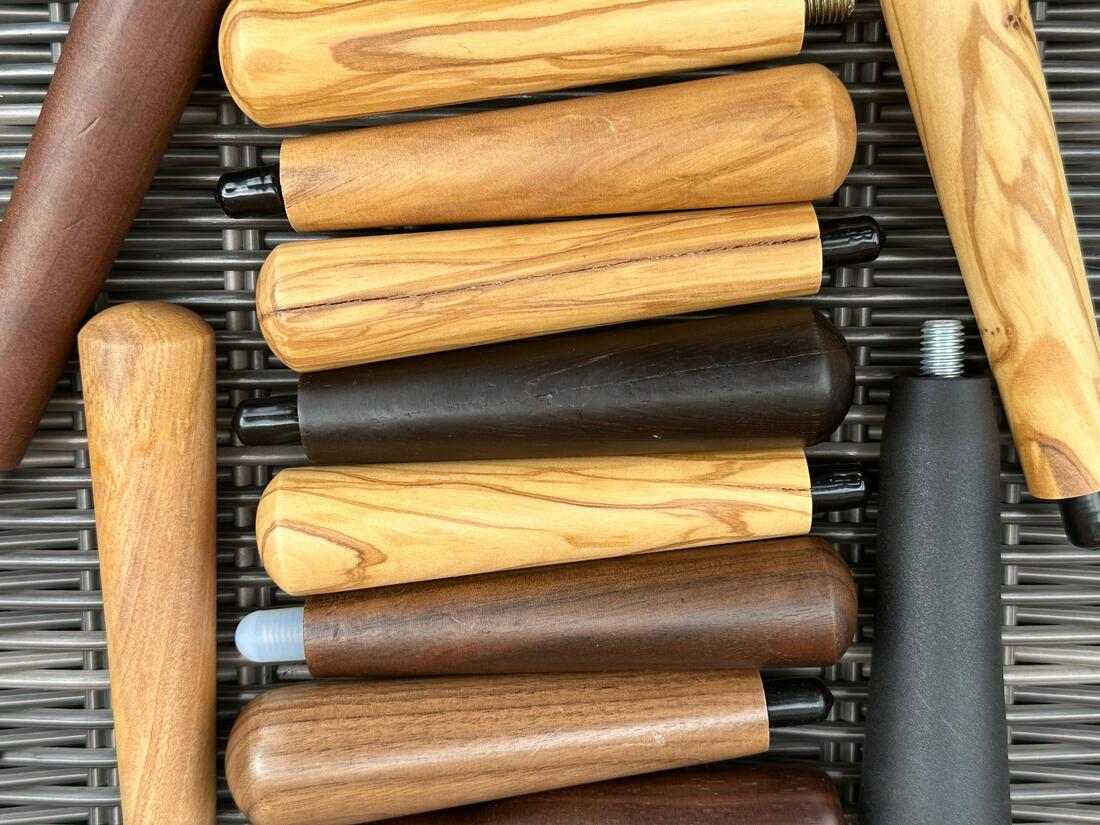
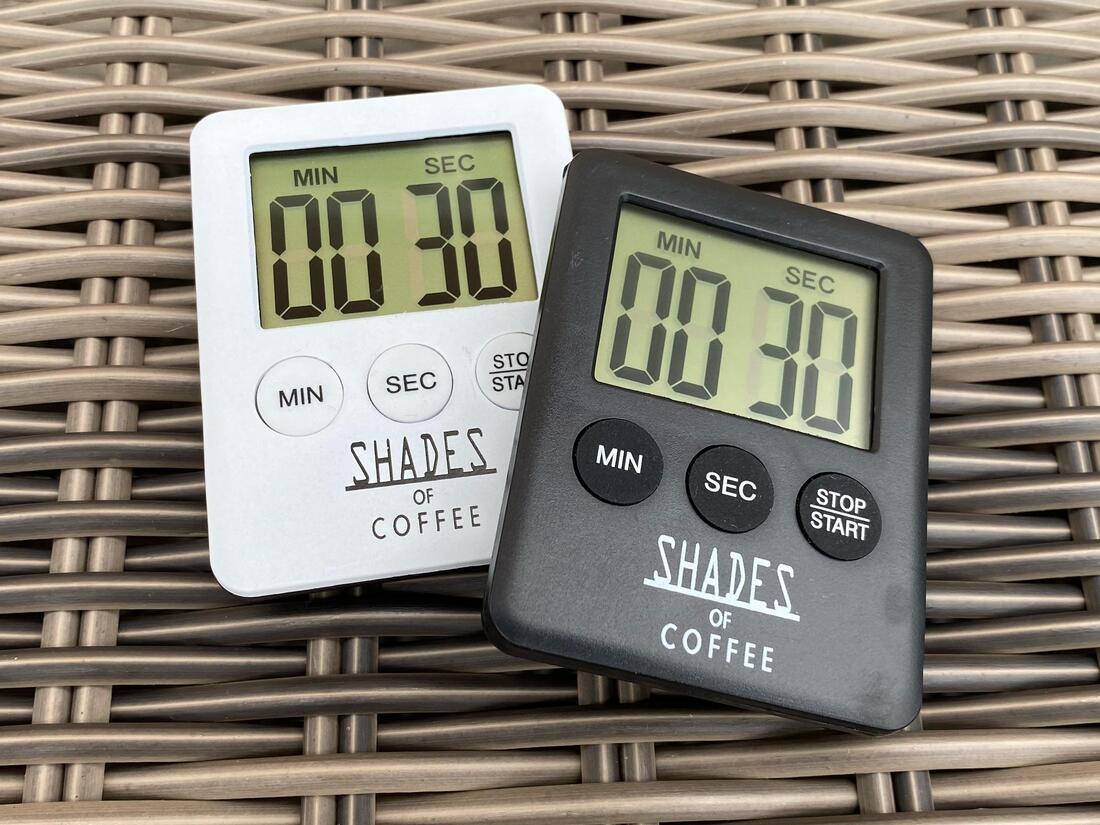
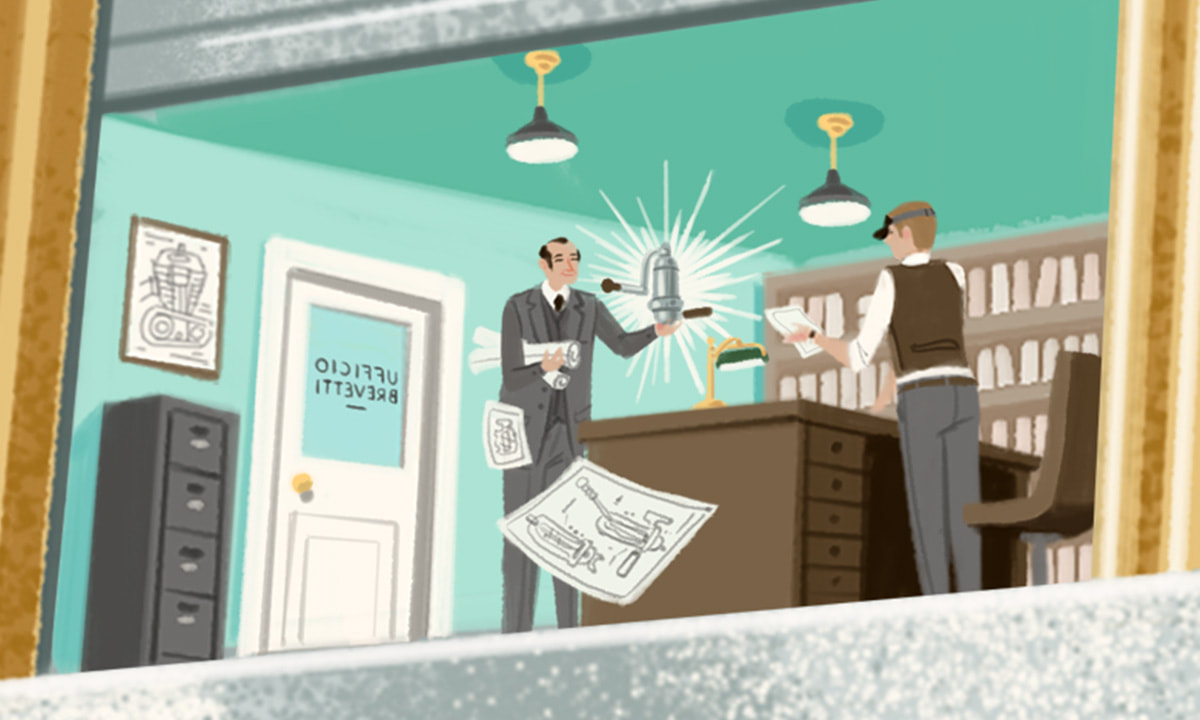
 RSS Feed
RSS Feed